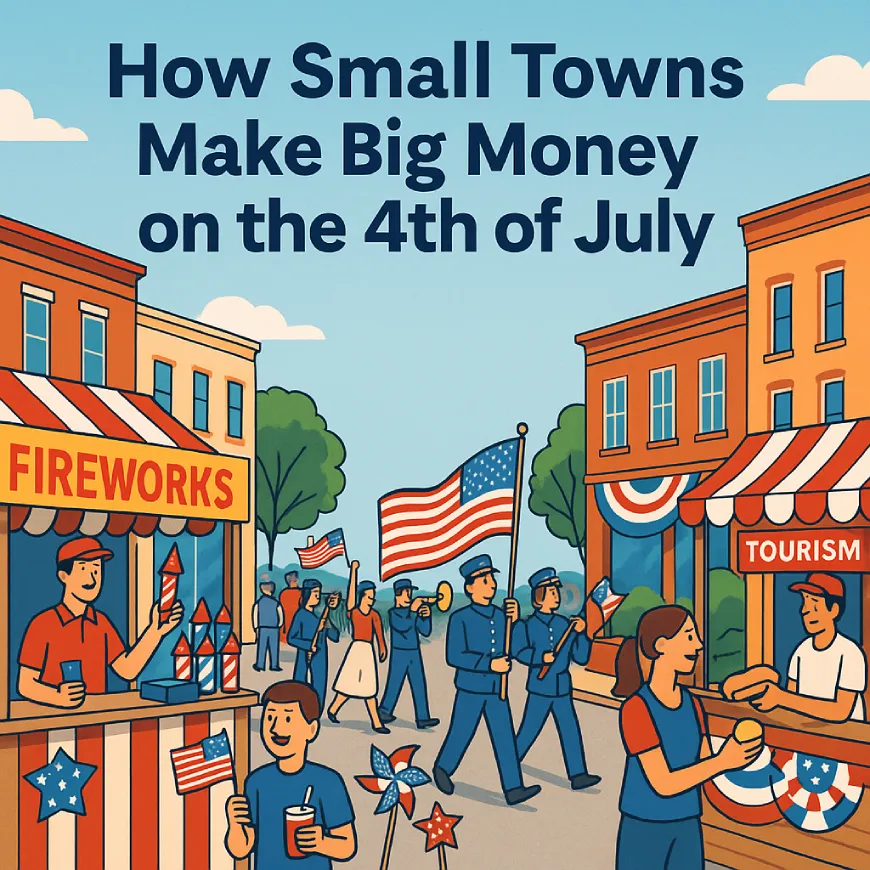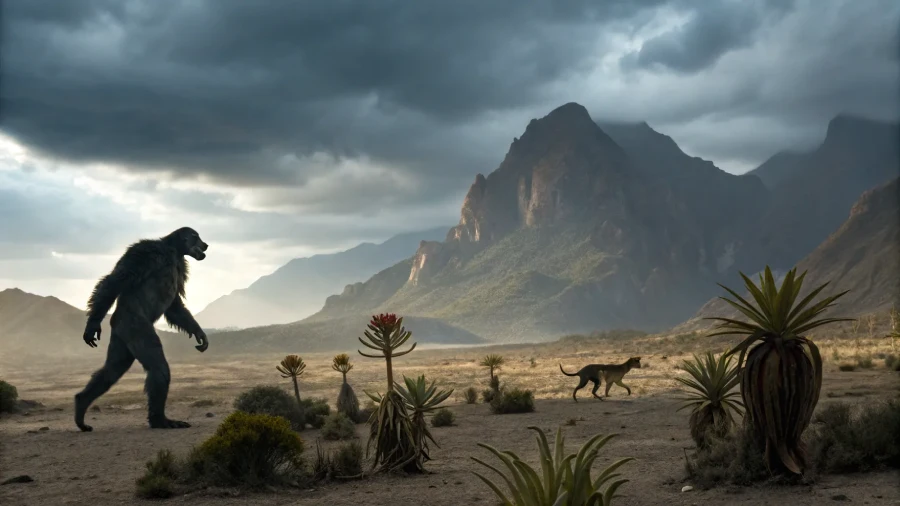The 4th of July, or Independence Day, is one of the most celebrated holidays in the United States. It is a day full of fireworks, parades, barbecues, and family gatherings. But beyond all the fun, the 4th of July also means something very important for many small towns across America — it means big business. Small towns use this holiday to bring in tourists, boost local sales, create jobs, and raise money that helps their communities grow.
In this article, we will explore how small towns make a lot of money on the 4th of July. We will look at different ways they earn, including pop-up stands, tourism, parades, and other local events. We will also discuss the challenges they face and how they adapt to keep their Independence Day celebrations alive. Finally, there is a special section with frequently asked questions to answer any doubts you might have.
Pop-Up Stands: The Temporary Business Boom
One of the most noticeable parts of the 4th of July in many small towns is the appearance of pop-up stands. These stands sell fireworks, food, drinks, and patriotic items like flags, hats, and T-shirts. Though they only operate for a short time around the holiday, pop-up stands bring a huge boost to the local economy.
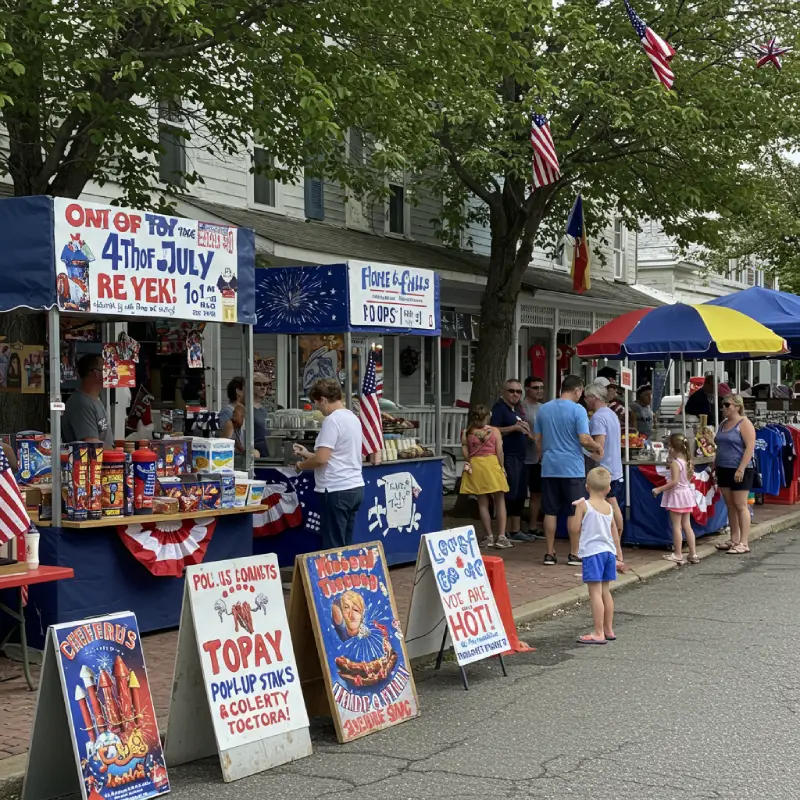
Fireworks Stands
Fireworks are the highlight of Independence Day for many Americans. Almost everyone loves the colorful lights and loud booms in the night sky. Because of this, small towns often see dozens of temporary fireworks stands pop up weeks before the 4th of July.
For example, in Mission, Texas, a family runs a fireworks stand every year. They can earn up to $3,000 just in commission during the holiday season. Their business supports their family and even brings the community together. It’s not just about the money — it’s about tradition and family bonding too.
Many of these stands are run by local families or small entrepreneurs who travel from town to town. They set up shop in parking lots, near grocery stores, or on main streets, attracting both residents and visitors.
Food and Drink Vendors
Besides fireworks, food and drink vendors also see a big increase in sales around the 4th of July. Food trucks, lemonade stands, and ice cream carts pop up near parks, parade routes, and festival areas. People love to enjoy tasty snacks and cool drinks while watching parades or fireworks.
Local restaurants and cafes often extend their hours and prepare special menus for holiday visitors. This extra business helps them cover their costs for the year and hire extra workers for the busy season.
Patriotic Merchandise
Many stands sell red, white, and blue items like flags, sunglasses, hats, and T-shirts. These products help people show their patriotic spirit and create memorable keepsakes of their Independence Day celebrations.
Small businesses that sell handmade or locally designed items also benefit from this. Tourists and locals often buy these products as gifts or souvenirs.
Tourism: The Heartbeat of Economic Boost
Tourism is one of the biggest ways small towns make money on the 4th of July. Around this time, many people travel to smaller towns to enjoy the holiday in a more relaxed and friendly atmosphere than big cities.
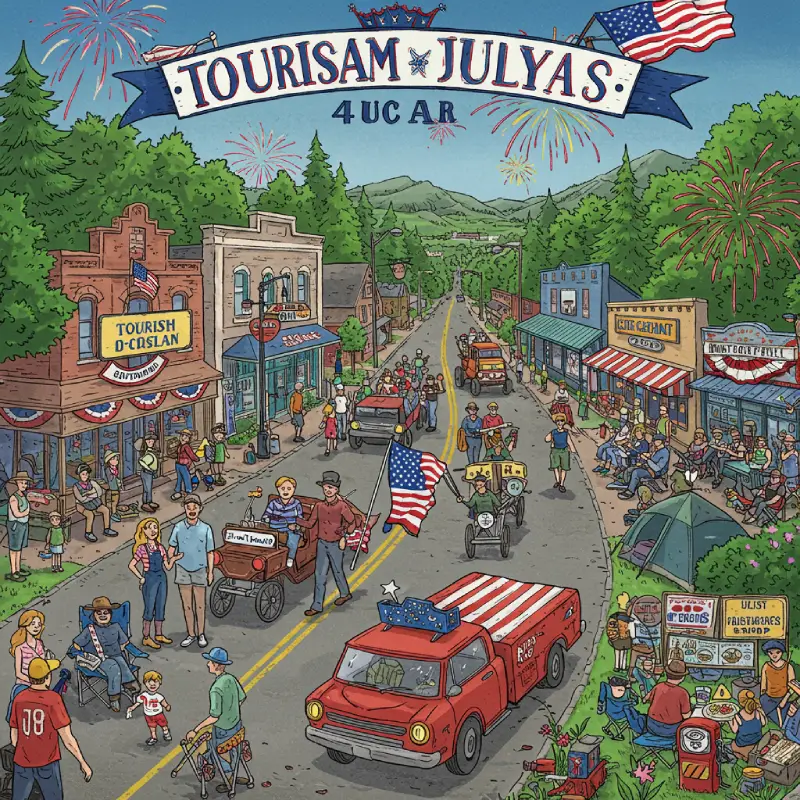
Why Tourists Choose Small Towns
Small towns often offer unique events that you won’t find in big cities. They have cozy parades, traditional fireworks shows, fairs, and community barbecues. Many tourists prefer this kind of experience because it feels personal and welcoming.
The natural beauty around small towns — such as lakes, forests, and parks — also attracts visitors. They combine the holiday with camping, fishing, or hiking trips.
Spending by Tourists
Tourists spend money in many ways. They pay for:
- Hotels and motels: Many small towns have limited places to stay, so hotel rooms fill up fast. This means increased prices and more income for the hospitality industry.
- Restaurants and cafes: Visitors eat out more during holidays, which means more sales for local dining spots.
- Shops and markets: Tourists buy souvenirs, clothing, and snacks while they visit.
- Gas stations: Traveling to and around towns means more gas purchases.
Real Numbers from Thomasville, Georgia
Thomasville, a small town in Georgia, provides a great example of the economic impact of the 4th of July. In 2021, their annual fireworks show brought thousands of visitors. These visitors spent an estimated $76.8 million in the local area during the holiday weekend.
Local businesses saw a significant boost. Fallin’s Barbecue, a well-known restaurant, reported a 50% increase in sales during the Independence Day period.
The increased business not only helps individual companies but also creates jobs. Thomasville’s Downtown Development Program, supported by the holiday events, has created 328 new jobs and attracted $62.9 million in investments over five years. This shows how the 4th of July helps towns grow economically in the long term.
Parades: More Than Just Fun
Parades are a classic part of the 4th of July. Small towns use parades to celebrate their history, community, and patriotism. But parades also help towns make money in many ways.
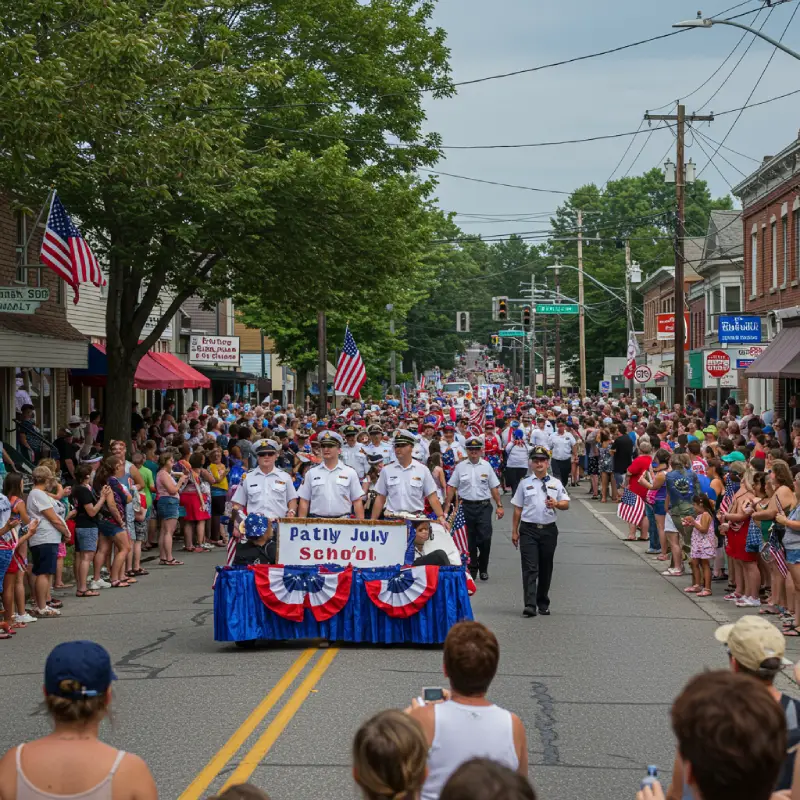
Community Pride and Unity
Parades bring people together. Local schools, fire departments, veterans’ groups, and businesses join in to celebrate. This builds pride and unity in the town, encouraging residents to support local businesses more.
Attracting Visitors
Many parades attract thousands of people from nearby towns or even states away. Visitors who come to watch the parade often stay for other events, eat at local restaurants, and shop in local stores.
Examples of Big Parades
In Canyon, Texas, the 4th of July parade includes over 100 floats, a pancake breakfast, a fair with over 100 vendors, and a fireworks show. This event draws more than 30,000 people, a huge number for a small town.
Similarly, Addison, Texas, hosts “Kaboom Town,” one of the biggest Fourth of July events in the country. The event includes an air show, music, and a fireworks display that draws up to 500,000 visitors. Local hotels, restaurants, and shops see massive increases in sales during this time.
Other Economic Benefits of 4th of July Celebrations
Besides pop-up stands, tourism, and parades, many other activities help small towns make money during the holiday.
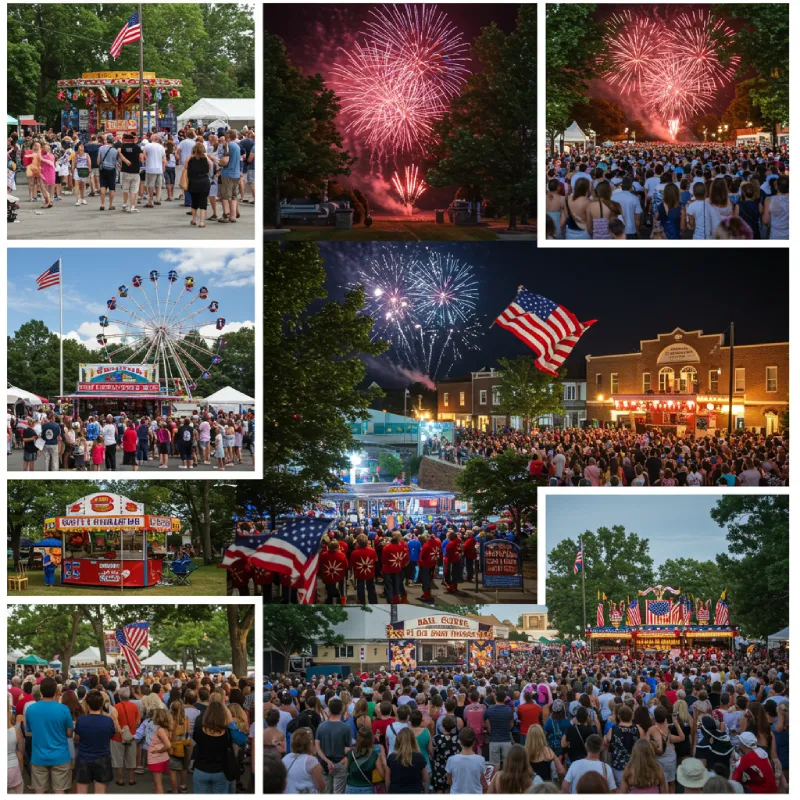
Local Fairs and Festivals
Many towns organize fairs, carnivals, or music festivals during the 4th of July weekend. These events sell tickets for rides, games, and shows. They also rent spaces to food and craft vendors, creating income for the town.
Fireworks Sales and Shows
Besides the temporary fireworks stands, towns often invest in professional fireworks shows that attract large crowds. While these shows cost money to organize, they also bring in sponsorships, donations, and increased visitor spending that cover the costs and generate profit.
Special Events and Tours
Some towns organize special tours, historical reenactments, or museum exhibits around the 4th of July. These events charge entry fees and attract visitors interested in history and culture.
Challenges Faced by Small Towns
While the 4th of July is profitable, small towns face some challenges in hosting these big celebrations.
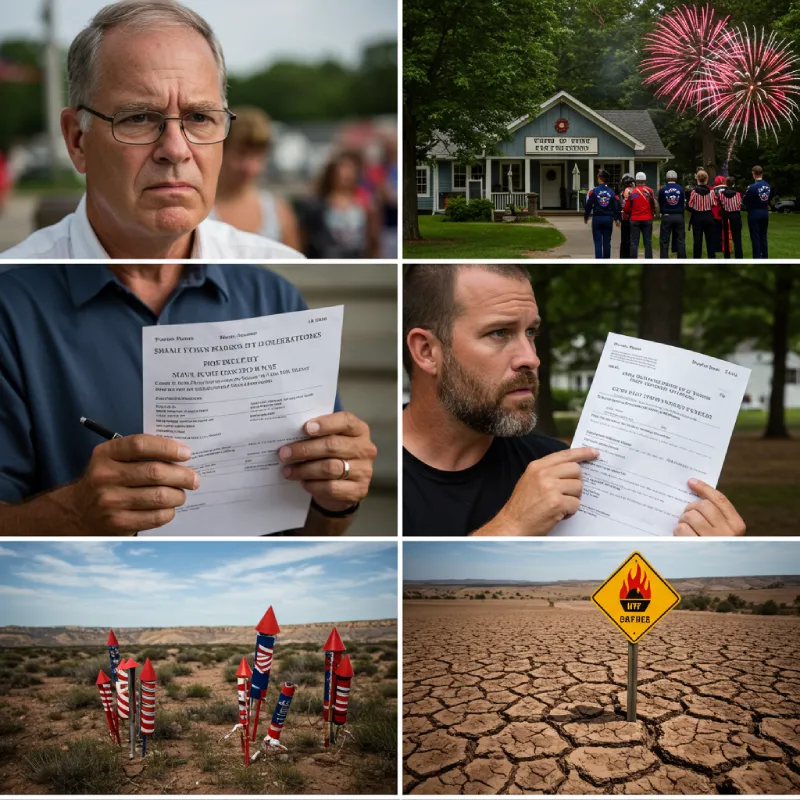
Rising Costs of Fireworks
Fireworks are the star of Independence Day, but they have become more expensive. Most fireworks sold in the U.S. are imported from China. Recently, the U.S. government has put high tariffs (extra taxes) on these imports to protect American businesses.
Because of these tariffs, prices for fireworks have gone up. This makes it harder for small towns to afford big fireworks shows or for families to buy fireworks.
Safety and Regulations
Fireworks are dangerous if not handled properly. Small towns must follow strict safety rules and may need to hire extra security or emergency services during the holiday. This adds to the cost of celebrations.
Weather Risks
The 4th of July often falls during hot summer months. Dry weather can cause fire dangers, especially in rural areas. This sometimes forces towns to cancel fireworks or limit outdoor activities.
How Small Towns Adapt and Overcome
Small towns have found ways to handle these challenges and keep their 4th of July celebrations thriving.
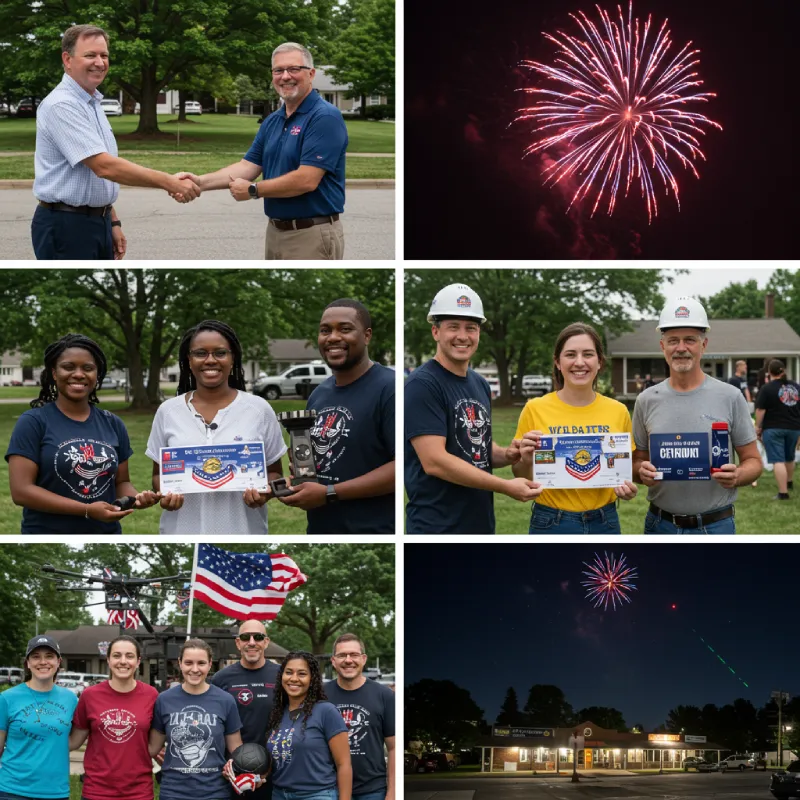
Fundraising and Sponsorships
Many towns raise money by asking local businesses to sponsor fireworks shows, parades, or other events. Businesses benefit from advertising during the events and feel proud to support the community.
Community Involvement
Towns involve volunteers and local organizations to help run events. This reduces labor costs and builds a stronger community spirit.
Sharing Resources
Some nearby towns cooperate by sharing equipment, fireworks, or staff for celebrations. This lowers expenses and makes big shows possible.
Alternative Fireworks
Some towns have started using drone light shows or laser displays instead of traditional fireworks. These options can be safer and less expensive while still providing entertainment.
Frequently Asked Questions (FAQs)
1. Why do small towns make more money than big cities on the 4th of July?
Small towns often rely more on holiday events to boost their local economy. Big cities have many year-round attractions, but small towns see a large jump in visitors and sales during holidays like the 4th of July. The community feel and unique events attract tourists looking for a different experience.
2. How do pop-up stands work?
Pop-up stands are temporary shops that appear only for the holiday season. They sell fireworks, food, and patriotic goods. Many are family-run and move from town to town to make money during the busy holiday.
3. How do small towns attract tourists for the 4th of July?
Towns organize parades, fireworks shows, fairs, and festivals that offer a small-town charm visitors love. Natural attractions and local culture also play a big role. Some towns market their events online and partner with hotels to encourage visitors to stay.
4. What are some challenges small towns face for 4th of July celebrations?
Higher costs of fireworks, safety regulations, weather issues, and limited resources can make hosting big events hard. Small towns often have smaller budgets and fewer staff to organize events.
5. What can towns do if they cannot afford fireworks?
Towns can raise funds through sponsorships and donations, use drone or laser shows, or team up with neighboring towns to share costs. Volunteer help also lowers expenses.
6. How do 4th of July events create jobs?
Events increase demand for workers in restaurants, hotels, event planning, security, and more. Seasonal jobs also appear to help with setting up and running celebrations.
7. Why are fireworks more expensive now?
Most fireworks are imported from China. Recent tariffs on Chinese goods have raised prices. This affects both retailers and towns organizing fireworks shows.
Conclusion
The 4th of July is more than just a holiday; it is a chance for small towns to shine economically and socially. Through pop-up stands, tourism, parades, and other events, these communities bring in visitors and create a festive atmosphere that benefits everyone.
Even though they face challenges like rising costs and safety concerns, small towns adapt by coming together, fundraising, and using creative solutions. Their Independence Day celebrations keep the spirit of America alive while also supporting local businesses and creating jobs.
So, next time you visit a small town on the 4th of July, remember you are part of an important tradition that helps keep these communities strong and thriving.
